Welcome to the Cambridge Cancer Research Hospital newsletter
Winter 2021
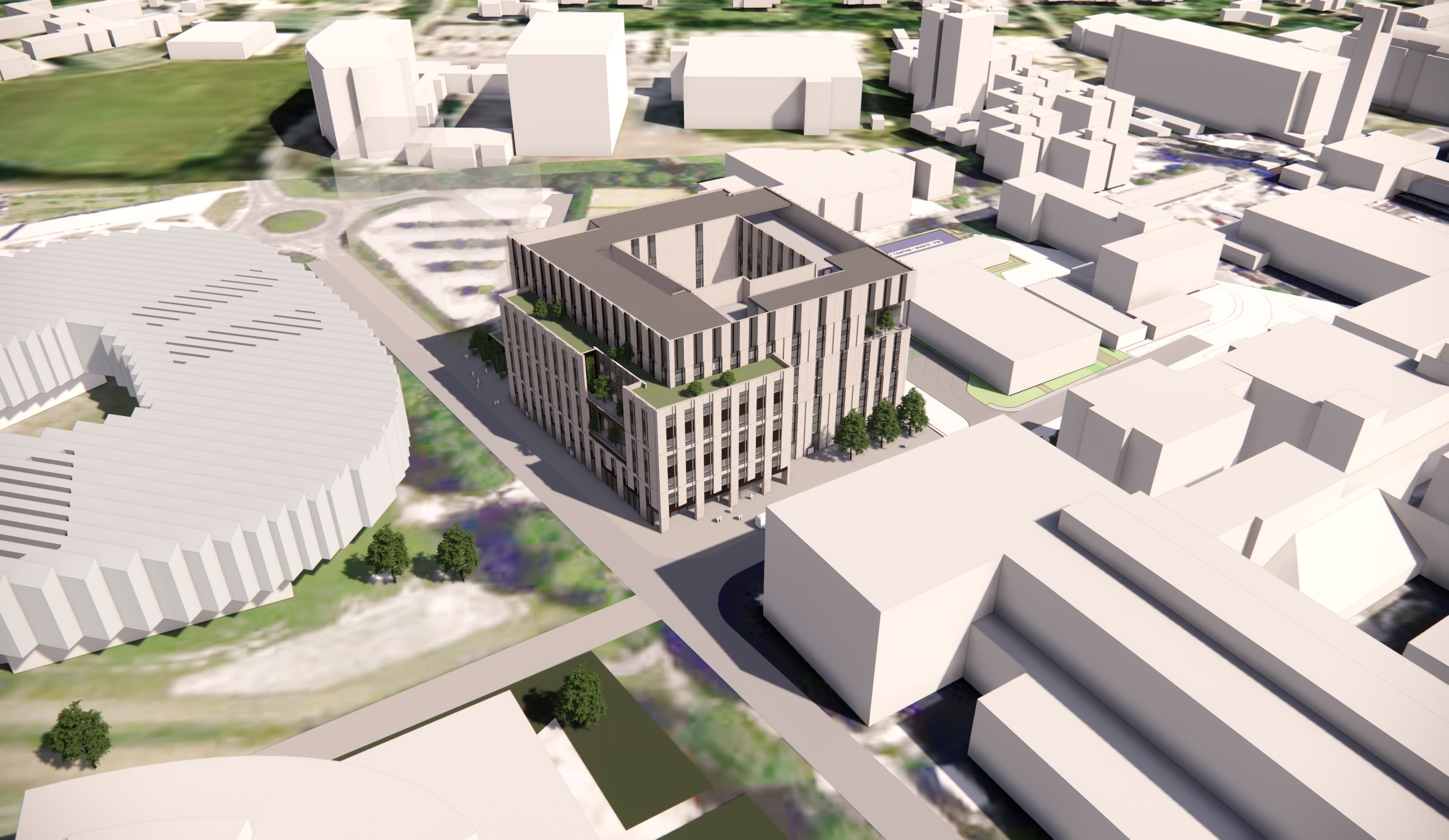
Major milestone for Cambridge Cancer Research Hospital
I am delighted to share with you the news that that the Cambridge Cancer Research Hospital (CCRH) project has now had the first stage of its business case (the Strategic Outline Case) approved.
The approval of the Strategic Outline Case (SOC) by the Department for Health and Social Care and NHS England & NHS Improvement provides backing for the CCRH scheme as part of the government’s commitment to build 40 new hospitals by 2030, with construction set to begin in 2023.
Work will now begin on the Outline Business Case, which will develop the preferred way forward for the hospital from the SOC and demonstrate that the option is both affordable and deliverable. We hope to submit this in early 2022.
It is a really exciting point in the development of the hospital, which is a partnership between Cambridge University Hospitals (CUH) and the University of Cambridge. The building will combine cutting-edge NHS clinical space with three new research institutes that will support the ambitions set out in the government's Life Science Strategy and the NHS Long Term Plan. The new seven storey, 26,000 m2 space will be situated between Addenbrooke’s and the AstraZeneca building on the Cambridge Biomedical Campus, Europe’s leading life sciences campus.
Bringing together world-class clinicians with cutting-edge University and industry-led research, CCRH will accelerate the early detection of cancer and lead the way in delivering bespoke, precision treatments that will radically improve patient outcomes.
Hugo Ford
CCRH Clinical Director
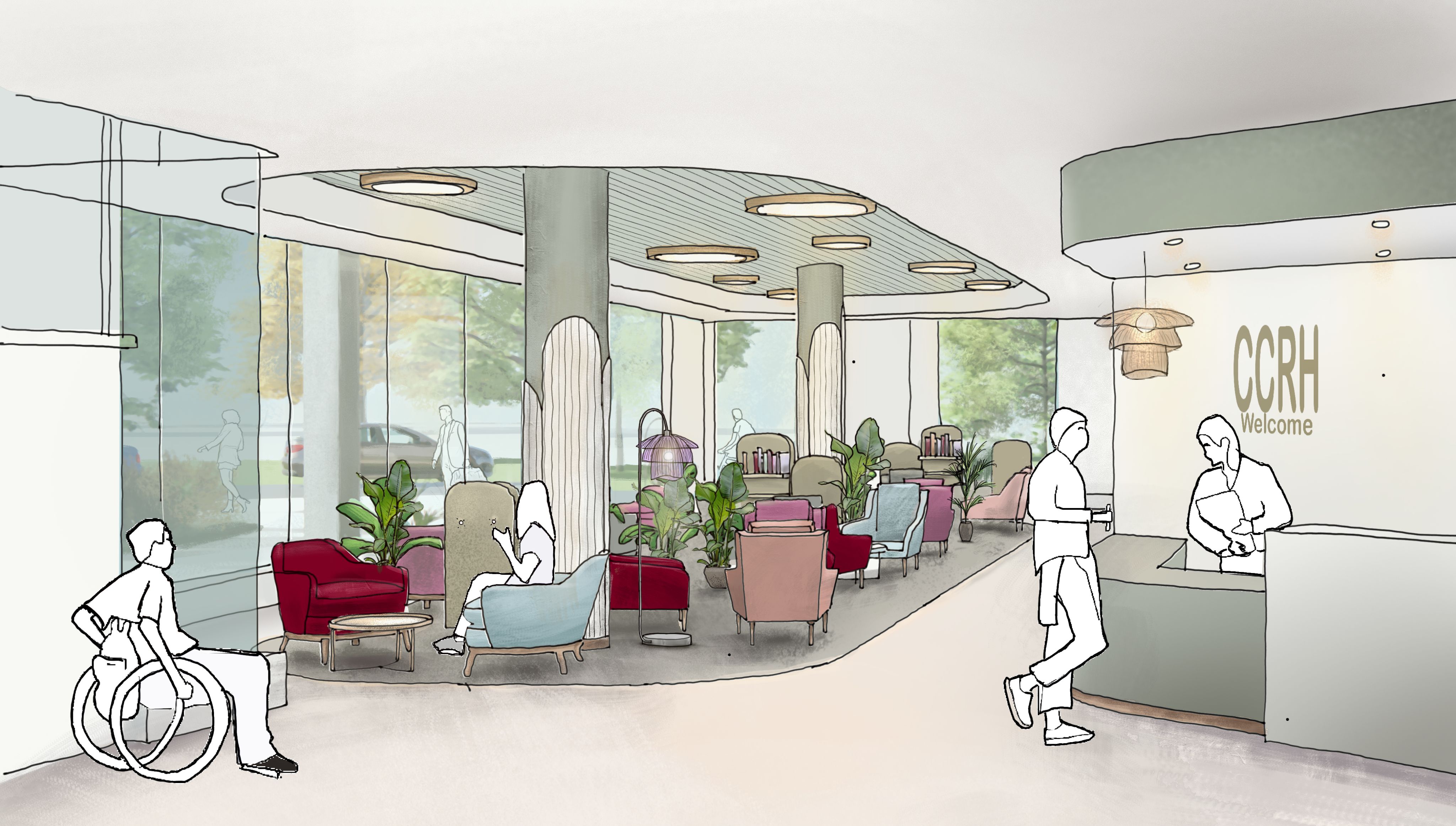
Co-Production: Moving Towards Patient-Centred Care
We want to change the story of cancer for our patients.
That's why our patients and our staff are working together to develop the plans for the new hospital.
Genuine co-production is about overcoming challenges to involve patients in designing and planning services from strategy development to service delivery - 'from wards to boards'. Involving patients makes the most of their invaluable knowledge, experience, skills and networks, and leads to a better experience and outcomes for all patients.
Our Patient Advisory Group (PAG) meets every month and its members sit on each of the Project workstreams to ensure the patient voice is heard in every strand of the Project. The PAG Co-Chairs sit on the Project’s delivery board. They provide challenge, contribute ideas and play an active role in steering the design and development of Cambridge Cancer Research Hospital.
Fiona Carey, PAG Co-Chair, said: "When you involve patients you end up with a better design and a better product. It's delivered faster and with fewer iterations and revisions. And as a result it's delivered less expensively because you've called on all that expertise and encouraged its involvement early on."
Neil Stutchbury, PAG Co-Chair, said: "I passionately believe that things are better when patients are involved with new service design or new buildings along with the staff that are designing them and delivering the new services."
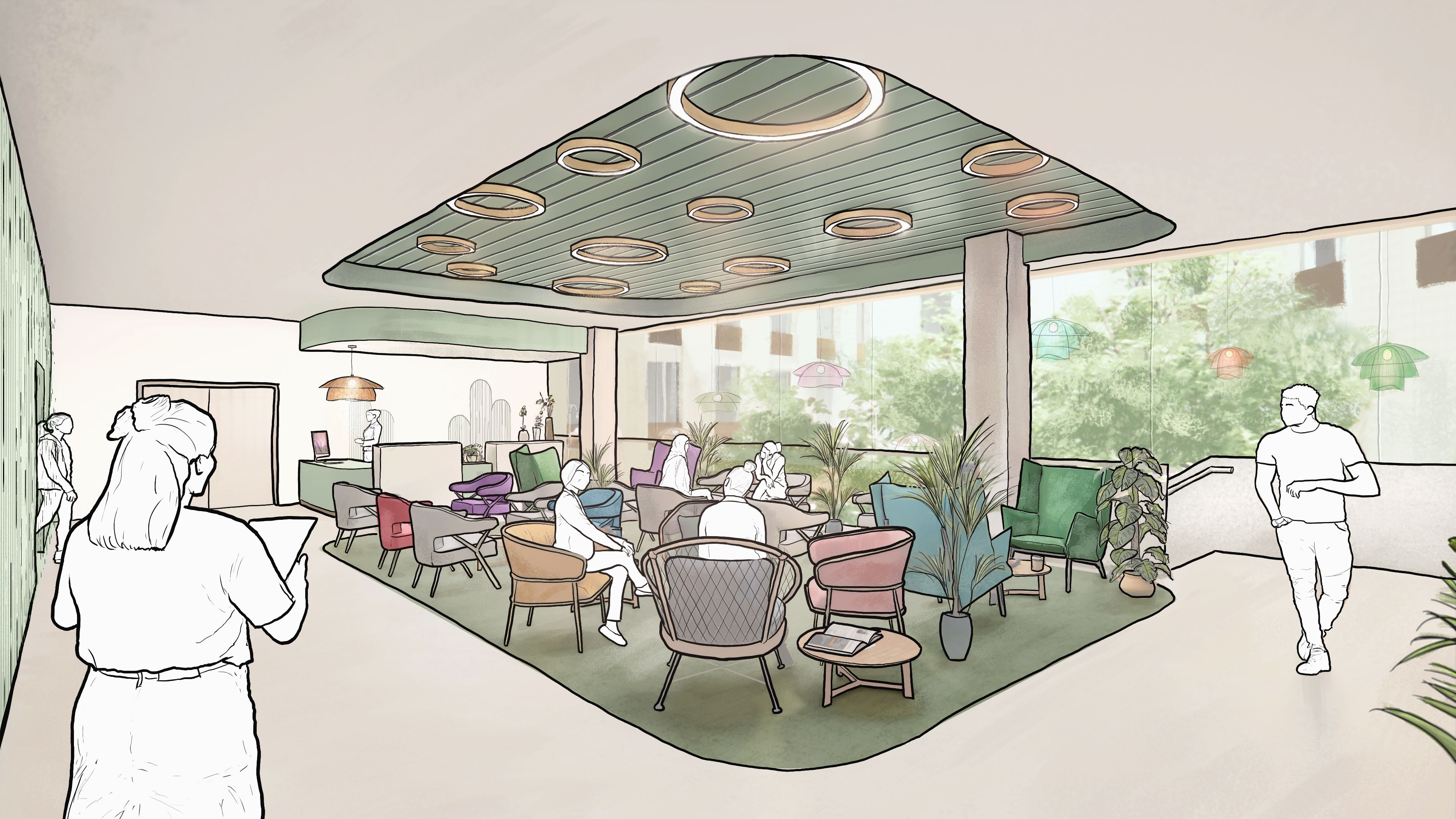
We have established a Cancer Patient Network for patients to input their thoughts and opinions in a less formal way. There are many ways to be involved, from filling in short surveys to being involved in discussions to inform key decisions; it is totally up to the individual to decide how much time they want to give. If you have cancer now, or have had it in the past, or you are a close relative or friend of someone that has cancer now, or has had it in the past, and would like to join the Network please visit the link below to fill in our online form.
An Unparalleled Opportunity for Brilliant Collaboration
With world-class scientists from the University of Cambridge and the Cancer Research UK Cambridge Centre working at the heart of the hospital, CCRH will literally bring the bench to the bedside and dramatically transform our ability to beat cancer.
CCRH will be home to three research institutes – The Institute for Integrated Cancer Medicine, the Institute for Cancer Early Detection, and the Institute for Breast Cancer Medicine. These institutes will build on some of the most extraordinary developments in early detection and precision medicine in Cambridge. Examples include the invention of the Cytosponge (or ‘pill on a string’) and lab test for diagnosing a condition known as Barrett’s oesophagus, which can increase risk of developing oesophagul cancer and the ‘InVision-First’ blood test, which identifies abnormalities driving some lung cancers, so that treatment can be targeted.
The scale of research being delivered in Cambridge means that research partnerships are increasing and play a critical role in accelerating the translation of research and novel treatments into routine patient care. Commercial partnerships also help secure significant investment in research.
Partnering with industry on hard-to-treat brain tumours
When AstraZeneca moved its global headquarters to Cambridge in 2016 it was to build on its partnership with the University of Cambridge and the Cambridge Biomedical Campus ecosystem, delivering innovative interventions to improve patient outcomes.
Professor Richard Gilbertson and his team at the Cancer Research UK Cambridge Institute have been researching a chemo-resistant type of brain tumour which particularly affects children. The team discovered a specific fusion protein found in around 70% of sufferers, and because children with this type of abnormality do particularly badly, it is critical to their treatment to know if they have it.
Gilbertson’s team realised that if they could make an antibody against that protein, it would be possible to develop a simple, easy-to-use, and affordable diagnostic. AstraZeneca’s expertise in making antibodies via the Cancer Research UK-AstraZeneca Antibody Alliance Lab made it the perfect research partner.
The fruit of their collaboration is, as Professor Gilbertson explained, “now being tested on tumours in labs around the world. We have generated a routine diagnostic antibody which we think is the first one of its kind. That’s really exciting.”
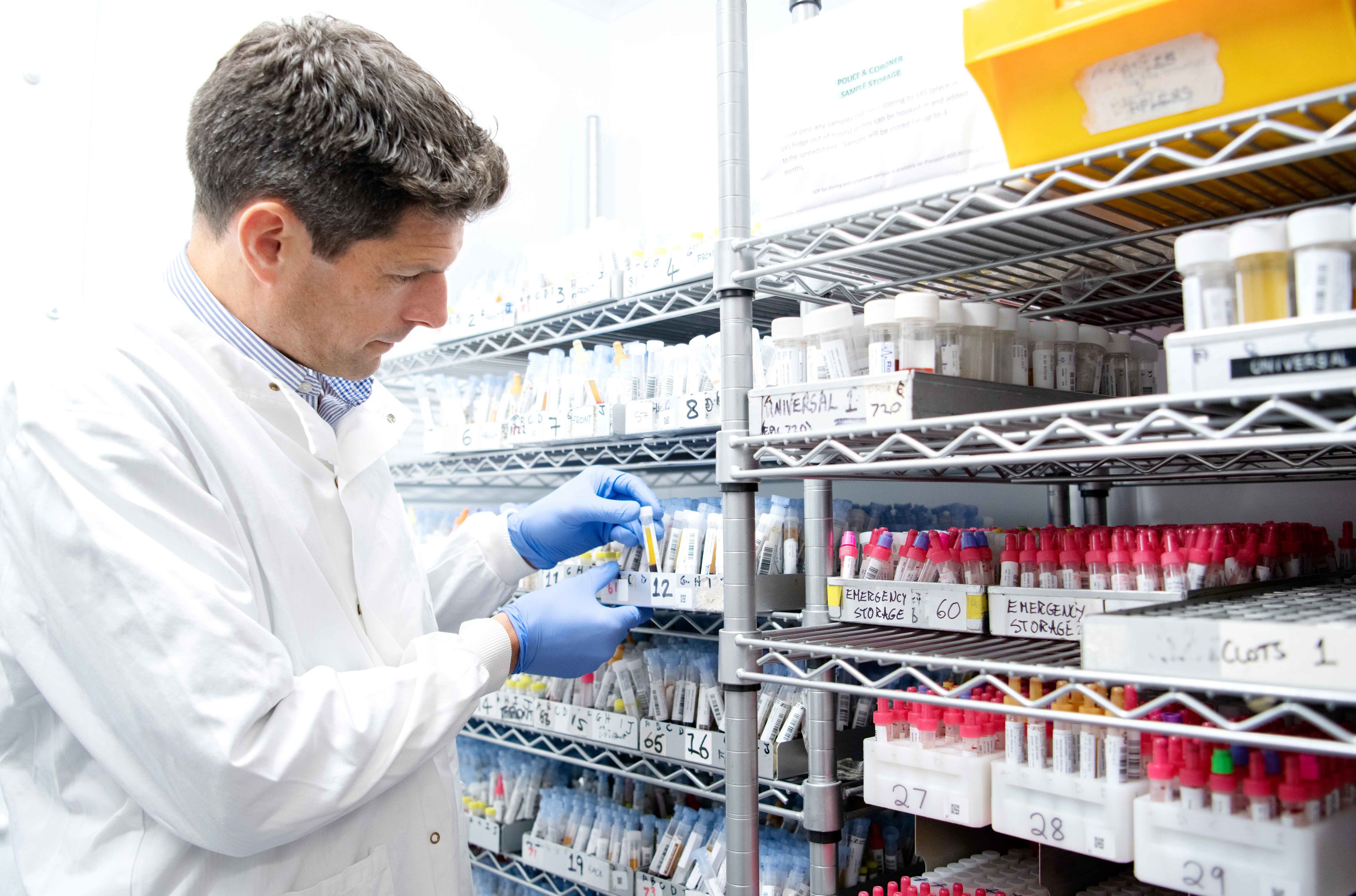
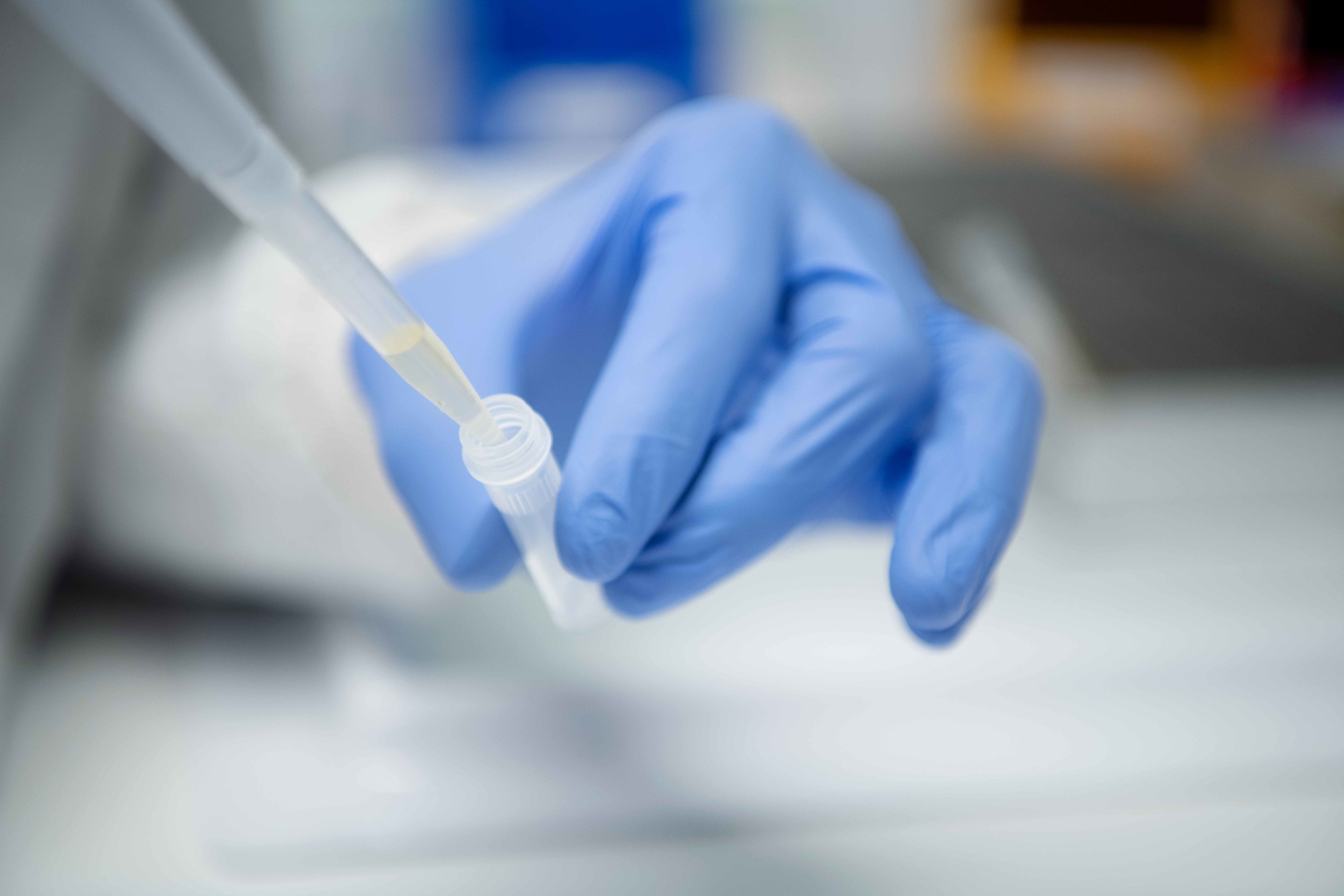
Latest cancer news from Addenbrooke's, University of Cambridge and CRUK Cambridge Centre
GE Healthcare, University of Cambridge and Addenbrooke’s hospital announce research collaboration
Cancer patients may get faster and more personalised treatment as result of collaboration between GE Healthcare, University of Cambridge and Addenbrooke’s hospital
Predicting Better
How two websites are transforming outcomes for breast and prostate cancer patients.
Personalised Breast Cancer Programme rolled out nationwide
A ground-breaking precision breast cancer treatment programme in Cambridge that could potentially save thousands of women’s lives is being rolled out across the country.
UK breast cancer study calls for 10,000 volunteers
An international trial, led in the UK by Addenbrooke’s Hospital, will test a more personalised way to screen for breast cancer and detect it sooner.
Mito warriors: how T cell assassins reload their weapons to kill and kill again
Cambridge researchers have discovered how T cells – an important component of our immune system – are able keep on killing as they hunt down and kill cancer cells, repeatedly reloading their toxic weapons.
Nurse Lauren is winner of prestigious national award
The Bowel Cancer UK charity has announced that Lauren McCrisken from Addenbrooke's Hospital, Cambridge, is a winner of the prestigious national Gary Logue Colorectal Cancer Nurse Awards.
New research to target advanced oesophagogastic cancer
An Addenbrooke’s doctor is leading a trial to find improved treatments for patients with advanced oesophagogastric (OG) cancer.
Local cancer experts joining hands to address global challenges
The Cancer Research UK Cambridge Centre and Abcam have announced the extension of their long-standing relationship and formalized a new framework for broad collaboration
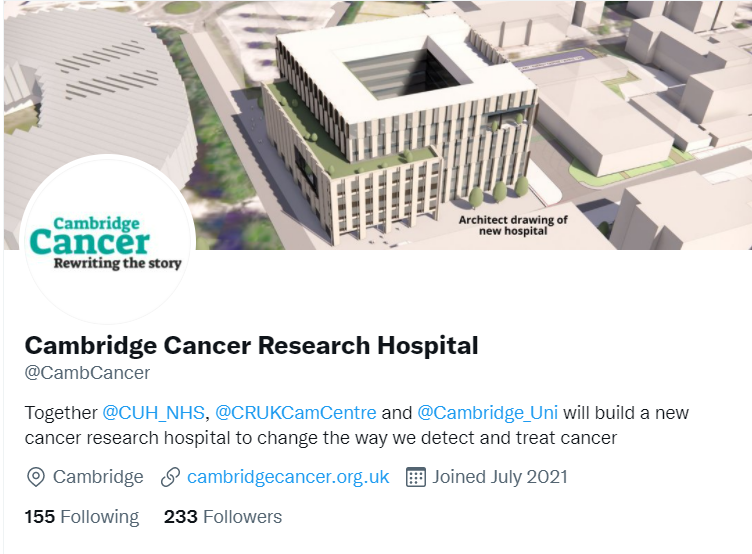
Follow us on Twitter for news about the project and visit our website for more information.
To unsubscribe, email hello@cambridgecancer.org.uk
Season's greetings from the
Cambridge Cancer Research Hospital project

